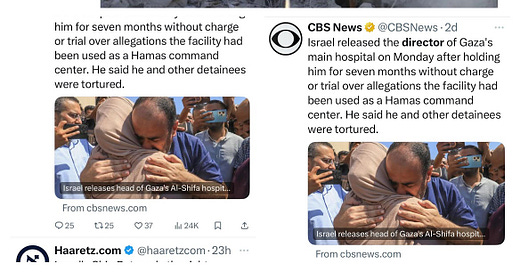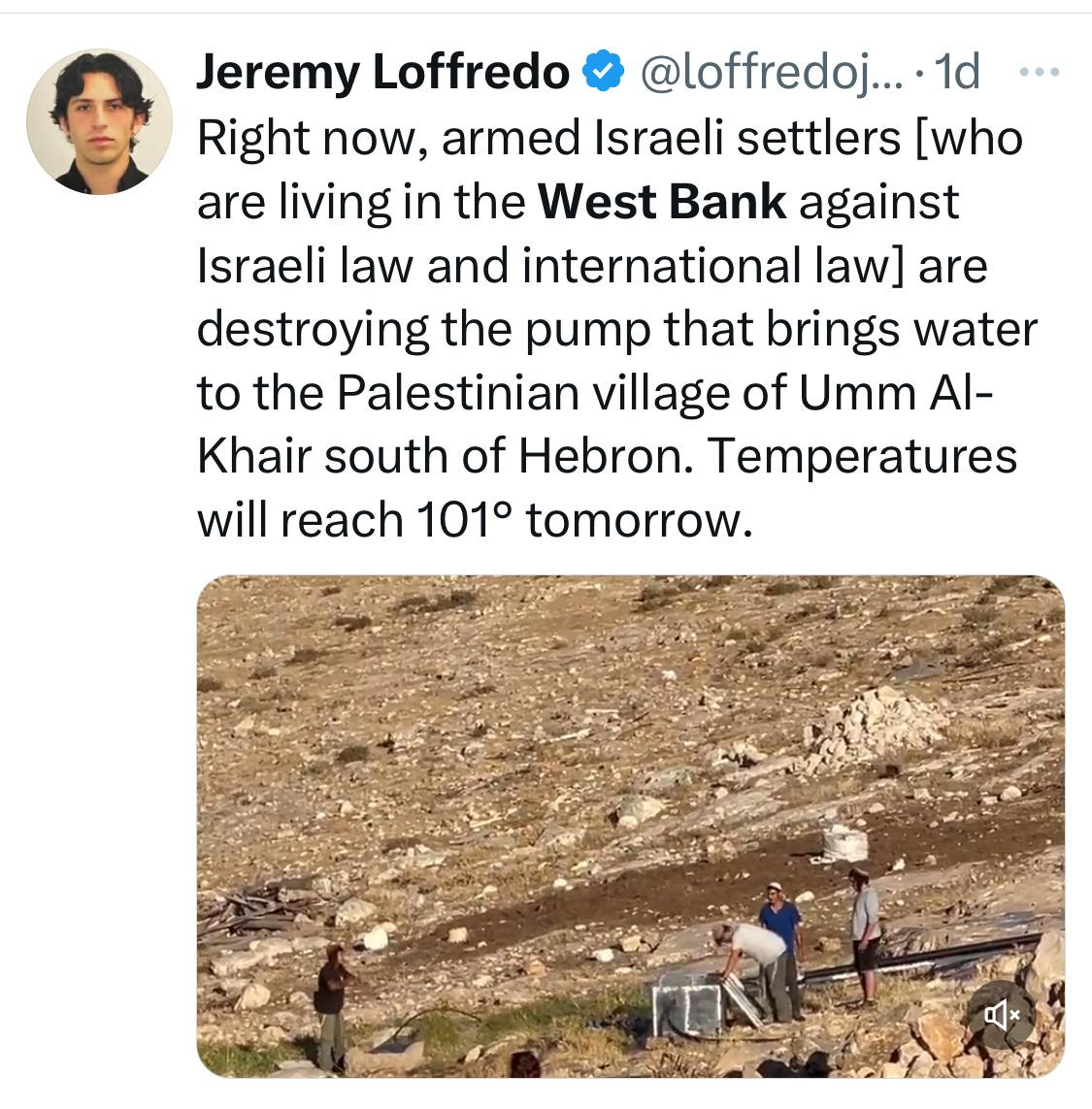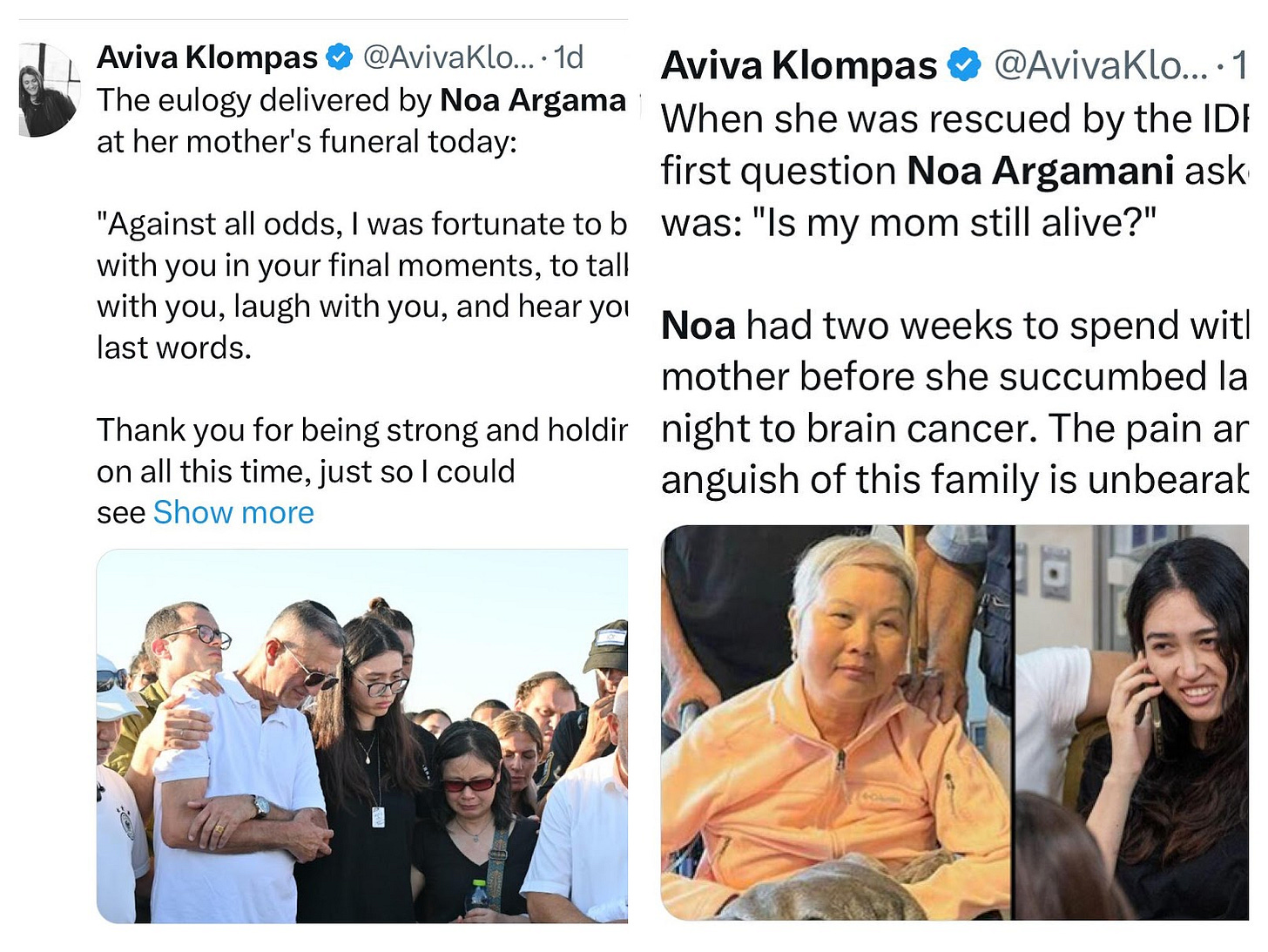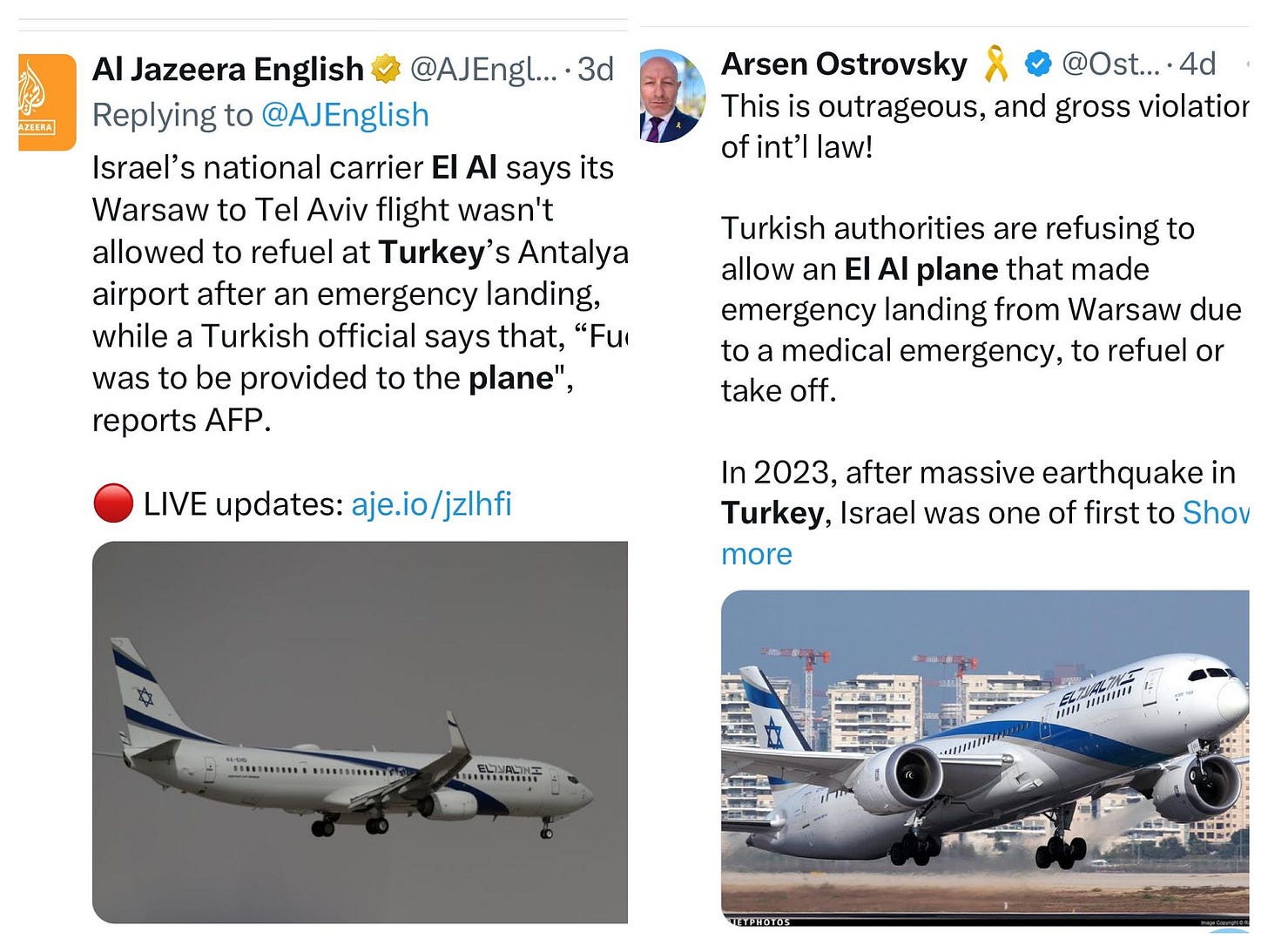Israel at War - Day 273
1. The War in Gaza
A vocal and public debate started between the Shin Bet (Israel Security Agency), and some members of the Israeli cabinet after the release of the director of Al Shifa General Hospital in Gaza. Muhammed Abu Salmiya, the director of the biggest hospital in the Gaza Strip, was arrested because he gave shelter to Hamas operatives and because a few hostages were held inside the hospital area. It was reported that one or two of the hostages were murdered while in the hospital compound. Israeli military forces found some operational Hamas tunnels underneath the hospital. Israel claims that the director knew about Hamas’ use of the hospital facilities and did nothing to prevent it. Israel also argues that the director is an active member of Hamas. He was taken into custody but no charges were filed against him. He was released with 54 other Gazan Palestinian detainees earlier this week, due to a lack of space in Israeli detention facilities, and due to the fact that he did not participate in the October 7 massacre in southern Israeli communities.
It seems that nobody knew or tried to find out which prisoners were slated to be released before they were actually released. Shin Bet and prison authorities alerted the minister of national security, Itamar Ben-Gvir, several times as to the problem, but he took no actions. PM Netanyahu also knew of the overcrowding in the facilities and did nothing. The head of the Shin Bet knew of the upcoming release but nobody knew who was on the list. Al Shifa General Hospital became a symbol in Israel and in Israel's international campaign against Hamas, to show how deeply Hamas was rooted in Gaza, even in the hospitals. When this was revealed, there was a vociferous argument in the cabinet during which Ben Gvir directly, brutally and publicly attacked the head of the Shin Bet. As a result the Shin Bet published a response accusing Ben Gvir of lying.
In the meanwhile, senior military officers told the New York Times anonymously, that Israel should call for a ceasefire in Gaza, withdraw its forces, and move to deal with Hizbollah in the north. PM Netanyahu denied any call for a ceasefire before a total victory and elimination of Hamas. A ceasefire is also strongly desired by the Biden administration. If Israel should end its military operations in Gaza, there is no plan for who will take over the administrative governing of more than two million people in the Gaza Strip, which organization will distribute food, take care of water, sewage, electricity or enforce law and order.
2. Escalation in tension in West Bank and Northern Israel
Amidst the war in Gaza and the escalation in tension on the Lebanese border, this week has seen further escalation in the West Bank and inside Israel.
At a shopping mall in the northern Israeli city of Carmiel, an Arab citizen of Israel, a resident of a nearby Arab village, killed a soldier and injured another man in a stabbing attack. He was shot and killed at the scene shortly after. Police arrested several of his family members at the scene, and later entered his village and apprehended additional members of the family, who will remain in custody for further investigations.
In the West Bank, tensions continue to escalate. According to the Palestinian Authority health ministry, a 46-year-old woman and 15-year-old teen were killed by IDF fire in the Nour Shams refugee camp, east of Tulkarm. Two Palestinians that were wounded and arrested in the West Bank city of Jenin last week, told the BBC that Israeli soldiers forced them on to the hood of a military jeep and drove them along village roads.
This, while according to the media and the NGO Peace Now, Israel's Supreme Planning Council is set to discuss plans for the construction of more than 6000 housing units in dozens of West Bank settlements, including those in the heart of the West Bank. Currently, there are approximately 500,000 Jewish Israelis living in Jewish settlements scattered throughout the West Bank.
Also, this week, settler violence in the West Bank continues. Earlier this week, settlers attacked a Civil Administration officer when security forces came to evacuate and demolish an illegal outpost in the West Bank, erected on private Palestinian land. A group of Jewish settlers threw stones and torched a car north of Nablus.
IDF Chief of Staff Lt. Gen. Herzi Halevi criticized the settlers’ attack, saying in a formal IDF statement that it was “a serious violent incident, which must be denounced and condemned. The rioters who attacked the members of the security forces while carrying out their mission must be brought to justice in a swift and severe manner.”
3. Mother of Released Hostage Dies of Cancer
Liora Argamani, mother of Noa Argamani, who was released in a military operation from Hamas captivity, died after a long battle with brain cancer. Throughout her daughter’s eight-month captivity, Liora expressed the hope that she would be able to see her again. In a statement, The Hostages and Missing Families Forum said that "in the last few days she had the privilege of being with her daughter Noa and other family members."
Several days before her mother’s passing, Noa Argamani made her first public statement since her rescue from Hamas captivity. In a video acreened at the weekly rally calling for a hostage deal, Noa thanked the participants for speaking for the release of the hostages when they could not speak out and said: "there are still 120 hostages in Hamas captivity. Among them is Avinatan Or, my partner, from whom I was separated at the moment of abduction… Although I'm home now, we can't forget about the hostages who are still in Hamas captivity, and we must do everything possible to bring them back home."
PM Netanyahu convened the security cabinet ahead of the departure of the Israeli team for negotiations with Hamas for a hostage/ceasefire deal.
4. Labor and Meretz Parties Sign a Merger Agreement
Recently elected Labor Chair, Yair Golan, and Meretz secretary general Tomer Reznik announced last weekend the unification of both parties representing the Israeli Zionist left under a new name - the Democrats. In achieving the unification, Golan fulfilled his pledge to Labor party members to unite the Israeli parliamentary left.
In their statements, Golan and Reznik emphasized the point that the union was not merely about creating a “technical bloc”, but to create a political home for many Israelis.
In a post, on the social media outlet X, Golan wrote that the union was “a necessary step on the way to the establishment of the broad home for the liberal democratic public in Israel and is a necessary condition for a change of government.”
In the current Knesset the Labor party has four seats. Meretz did not pass the minimal threshold in the last elections, and remained outside the Knesset without any seats. Many disappointed left wing voters blamed former Labor Party Chair, Merav Michaeli, for her objection to a union with Meretz before the last elections, which led to the shrinking of power of the Israeli parliamentary left and the establishment of the current far-right government.
Earlier this week, thousands of Jewish and Arab peace activists gathered at the Menorah stadium in Tel Aviv in a call for peace and an end to war in Gaza. The event, organized and sponsored by dozens of peace organizations featured bereaved families, former senior security officials, religious leaders, artists, and current anf former left wing members of Knesset.
5. Turkey Refuses to Refuel Israeli Plane
An El Al flight from Warsaw Poland to Tel Aviv airport, had to make an emergency landing in Turkey when one of the passengers needed urgent medical treatment. After the passenger got off the plane to go to the local hospital, the plane needed fuel to take off and make its way to Tel Aviv. But the local aviation authority refused the request to refuel, and the plane stayed on the runway for hours, with all the passengers on board. Finally the plane took off and landed in Rhodes Greece for refueling before it could safely continue to Israel. There was no danger to the plane or the passengers at any point.
This has caused a diplomatic crisis between Israel and Turkey, that intensified during the war in Gaza. Turkish President, Tayyip Erdogan announced lately that Turkey will cut all its commercial ties with Israel, stopping all commercial trade with Israel. The diplomatic relations between the two countries were in turmoil for years, and this further deteriorated since October 7th, mainly after Israel launched the ground military operation in Gaza. Nevertheless, the refusal to refuel a plane that made an emergency landing is by all means an extreme measure. Israel filed a complaint with the International Civil Aviation Organization (ICAO). The refusal to refuel has never happened before to an Israeli plane, even when it had to land in a hostile country that has no relations with Israel, like Saudi Arabia or Qatar.










